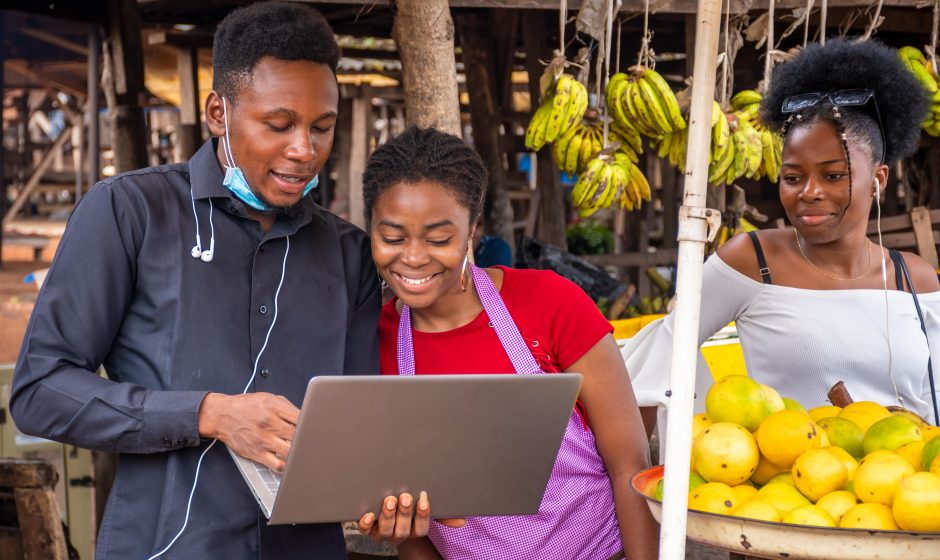Ghana’s tech industry is soaring. Once known for gold and cocoa, the country has become an emerging startup hub in Africa. With political stability and over 53% internet penetration (the second-highest in Sub-Saharan Africa), Ghana is attracting global attention. Accra and other cities now house dozens of co-working spaces, incubators, and accelerators – over 100 in fact, spread across the country. Leading examples include MEST Africa (software training incubator) and Impact Hub in Accra, Kosmos Innovation Center in Kumasi, and Node 8 in the Volta region. These hubs, along with networks like the Ghana Hubs Network and Ghana Startup Network, are nurturing entrepreneurs nationwide.
Ghanaian society has rapidly embraced entrepreneurship. The prestige once reserved for careers like doctor or lawyer is shifting, as being a founder is now widely celebrated. In just a decade, tech hubs have spread beyond Accra to all regions, helping stem urban migration by teaching digital skills to rural youth. Major global tech companies have even set up African headquarters here – for example, Google AI and Twitter base their West Africa operations in Accra. This growing ecosystem reflects a mix of local talent and international investment.
Startup Hubs & Innovation Centers
Accra and the nearby port city of Tema remain the heart of Ghana’s tech scene, but Kumasi (Ashanti Region) and Takoradi (Western Region) are also rising. In Accra, names like MEST, Impact Hub Accra, iSpace (a Ghanaian accelerator), and Startup Incubator Ghana are household names among founders. Bullet lists of sectors and programs illustrate the breadth of the ecosystem:
- Tech Hubs & Accelerators: Over 100 across Ghana, including MEST, Impact Hub, Kosmos Innovation Center (Kumasi), Node 8 (Volta), Kumasi Hive, and the Ghana Climate Innovation Center.
- Chambers and Networks: Groups like the Ghana Chamber of Young Entrepreneurs and Ghana Startup Network help founders connect and advocate.
- Government Support: The National Entrepreneurship and Innovation Programme (NEIP) provides training, incubation, and grants for startups. Ghana’s Office of Diaspora Affairs also actively links global partners and diasporans into the tech ecosystem. A draft Startup Act is in the works, signaling official support for innovation.
These hubs offer coworking space, mentorship, and pitch events. For example, MEST runs training programs and seed funding for early-stage startups; iSpace runs the MEST Incubator in Accra; and Impact Hub hosts the annual Tech In Ghana conference. Industry gatherings like the Ghana Tech Summit also connect entrepreneurs with investors. Altogether, these incubators are fueling a startup boom.
Key Tech Sectors: FinTech, HealthTech, EdTech & AgriTech
Ghana’s startups span many areas, but some sectors have taken the lead. For instance:
- FinTech: Digital finance is huge. Mobile money and app-based payments are bringing millions of unbanked Ghanaians into the financial system. Startups like Affinity Africa (a branchless digital bank) have quickly gained traction – Affinity raised $8 million in a 2025 seed round led by Grazia Equity and BACKED VC. Traditional lenders (banks and microfinance) are also digitizing fast. The boom in e-payments is partly driven by remittances and government push for cashless services. (Ghanaian fintech success stories include payment gateway ExpressPay, mobile lender Zeepay, etc.)
- HealthTech: Ghanaian startups are using tech to solve healthcare challenges. For example, mPedigree uses simple mobile verification (SMS/hologram codes) to combat counterfeit drugs in pharmacies. Local AI ventures like MinoHealth (diagnostic AI) are also emerging. Recently, digital health clinics and telemedicine platforms have grown – helping fill gaps in rural healthcare. In fact, Ghana’s health tech ecosystem has welcomed innovations from automated diagnostics to health data apps.
- EdTech: Education technology is on the rise. Digital learning platforms, language apps, and STEM training tools are gaining users. In 2025, MEST Africa partnered with the Mastercard Foundation to select 12 Ghanaian EdTech startups for an acceleration program. These companies are creating AI-powered tutors, offline digital lessons, and STEM curricula for underserved youth. The momentum from such programs shows how Ghana’s education sector is embracing innovation to reach more learners.
- AgriTech: Agriculture employs over 70% of Ghana’s workforce, so innovation here is vital. Startups are tackling issues like market access, financing, and climate risk. For instance, Wami Agro (an Acumen-backed company) offers a bundle of tech services – it collects produce from small farmers, offers credit for inputs, and provides weather/farming info via a mobile platform. Acumen’s $ investment in Wami Agro highlights the interest in agri-tech. Similarly, Farmerline and others provide soil sensors and digital training for farmers. Overall, Ghanaian agri-tech firms focus on mobile solutions and data to increase yields and incomes.
Many Ghanaian startups sit at the intersection of these sectors. For example, mobile health payments or education savings accounts blend finance, health, and ed tech. This diversity of innovation shows the ecosystem’s creativity and a focus on local needs.
Government & Investment
The Ghanaian government is actively supporting tech. The NEIP (National Entrepreneurship and Innovation Programme) offers incubation and even small grants for startups in ICT, agri, and industry. Other initiatives include tax incentives for tech parks and efforts to ease company registration. For example, a draft “Startup Act” is being developed to streamline regulations. Ghana also leverages international partnerships: various U.S. agencies, foreign foundations, and NGOs fund incubators and challenge prizes. (For instance, AGRA and USAID have funded agri-tech hubs.)
Foreign investors are noticing Ghana’s potential too. A growing number of venture capital firms and corporate investors are funding Ghanaian startups. Besides Affinity Africa above, companies like Zeepay have secured major funding (Zeepay raised $18M in debt financing in 2025). International tech players also contribute – for example, Google has run AI/Cloud training programs in Accra, and Meta (Facebook) has set up developer labs. All this capital and know-how is helping Ghanaian startups scale faster.
Opportunities for Diaspora Entrepreneurs & Remote Workers
Ghana’s growing tech boom is not just local – it’s global. African diaspora entrepreneurs and remote professionals have many ways to plug in. For starters, Ghana’s government has an Office of Diaspora Affairs that actively links diasporans with domestic opportunities. Groups like GDAAR (Ghana Diaspora Advocacy & Resource) organize events and networks to connect investors abroad with Ghanaian startups. Through these channels, diaspora investors can fund or co-found tech ventures at home, while skilled Ghanaians abroad can share expertise via mentorship or partnerships.
Remote work is another avenue. Although Ghana does not yet have a formal digital nomad visa or specific remote-work laws, many foreigners and Ghanaians living abroad already come for short stints or use business visas to work remotely. The country’s English-speaking environment, growing tech community, and affordable living make it appealing for IT professionals. Several tech conferences (like Ghana Tech Summit) are adding diaspora-focused tracks to engage these global talent pools. In practice, many start by contracting Ghanaian developers or consultants via online platforms, then gradually establish in-country operations.
In short, if you’re a member of the African diaspora or a remote tech worker seeking impact, Ghana offers fertile ground. The ecosystem is intentionally building bridges: from diaspora investment forums to coworking spaces in Accra tailored to expats. Even without a nomad visa yet, savvy remote workers can base themselves in Accra or Cape Coast and tap into local networks. Online communities (via LinkedIn, Slack, etc.) also link home-country startups with diaspora techies.
Conclusion: Ghana’s tech sector is on the rise, fueled by young entrepreneurs, proactive government support, and growing international interest. This momentum is transforming Ghana’s economy and creating new opportunities. For startups in fintech, healthtech, edtech, agritech and more, the combination of local innovation and foreign partnerships means a bright future. And for diaspora Africans and global remote workers, Ghana’s friendly ecosystem offers a chance to invest skills, start ventures, or collaborate on solving real-world problems.
Sources:
- U.S. International Trade Administration – “Ghana Tech Startup Ecosystem” (Jan 2024).
- International Trade Centre (ITC) – “Tech Entrepreneurship Ecosystem in Ghana” (2022).
- weeTracker – “Ghana’s Affinity Africa Raises USD 8 M Seed Round For Digital Banking Solution” (Feb 2025).
- Techpoint Africa – “African healthtech startups use blockchain, AI to combat counterfeit drugs” (Jun 2023).
- Ghana Diaspora Advocacy & Resource (diasporaadvocacygh.org) – “GDAAR Inspired by 3i Africa Summit: Championing Diaspora Investment in Ghana’s Digital Future” (May 2024).
- Acumen – “Acumen invests in Ghanaian agritech startup Wami Agro” (Feb 2025).
- InnovationSpark.com – “This Week in StartupGhana #37: Zeepay gets $18 million, Ghana EdTech startups get a boost” (Apr 2025).
- Business & Financial Times (thebftonline.com) – “The rise of digital nomadism: How Ghana can benefit from the global mobility trend” (Jan 2024).



